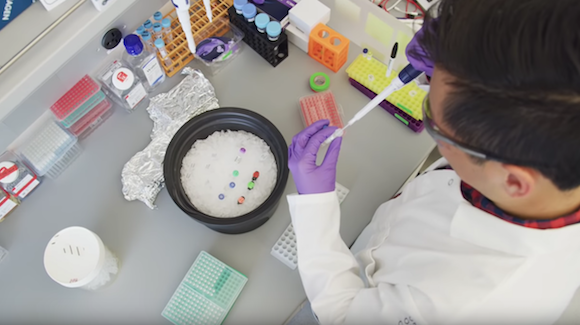Temsirolimus effective in some cases of heavily treated mantle cell lymphoma
Reuters Health • The Doctor's Channel Daily Newscast
“Although for first- or second-line therapy, combination chemotherapy regimens…are frequently used, long-term remissions are rare,” the investigators state in the Journal of Clinical Oncology, published online on July 6. “Thus, despite improvements in other lymphoma subtypes, in mantle cell lymphoma, there is still a strong unmet medical need for new treatment options.
Temsirolimus is a specific inhibitor of the mammalian target of rapamycin (mTOR) kinase, lead author Dr. Georg Hess, from Johannes Gutenberg University in Mainz, Germany, and associates explain. Their randomized, open-label, dose-finding trial enrolled 162 patients between 39 to 88 years old, who had refractory and/or relapsed mantle cell lymphoma after two to seven prior therapies.
Patients were randomized in a 1:1:1 ratio that included one of two temsirolimus groups and a control group, which was treated with standard chemotherapeutic single agents alone. Patients in the two temsirolimus groups were treated intravenously with 175 mg per week for 3 weeks followed by weekly doses of either 75 mg or 25 mg. The trial ran from mid-2005 to mid-2007.
Patients in the 175/75 mg temsirolimus group exhibited significantly longer progression-free survival compared with the control group (median 4.8 vs 1.9 months, p = 0.009). The progression-free survival of 3.4 months in the 175/25 group did not differ significantly from control.
The objective response rate in the high-dose temsirolimus group was also significantly higher than that in the control group (22% vs 2%, p = 0.0019). However, overall survival did not differ among groups.
In subgroup analyses, efficacy was not altered by age, gender, baseline Karnofsky performance score, disease stage, bone marrow involvement, number of extranodal sites or number of prior regimens of anticancer therapy.
The most common grade 3 or 4 adverse events associated with temsirolimus were thrombocytopenia, anemia, neutropenia, and asthenia.
“Future trials will address the efficacy in earlier disease and tolerability and efficacy of combination regimens,” Dr. Hess and associates note.
Reference:
J Clin Oncol 2009;27.






